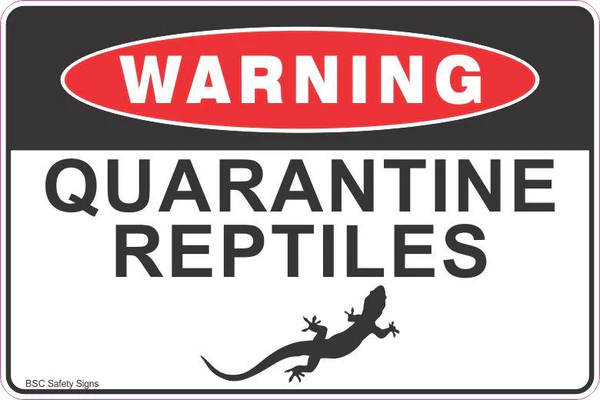Quarantine Guidelines for Reptile Owners
Introducing a new reptile to your home? Implementing a well-considered quarantine is not just a good practice - it's essential. This process involves isolating your new companion to observe, conduct disease testing, and assist in their acclimatization to the new environment. The inadvertent introduction of diseases can not only lead to frustration but also to significant financial burdens while underscoring the critical role of a meticulous quarantine process.
Tailoring Quarantine Practices:
In the past, quarantine durations followed a one-size-fits-all approach; however, modern practices tailor them based on the species and unique circumstances surrounding your pet. This personalized approach ensures the health and comfort of your new reptile, taking into account details such as their origin and health history.
Comprehensive Disease Risk Assessment:
A thorough risk assessment involves delving into the potential presence, exposure, and consequences of diseases. This comprehensive process includes reviewing detailed medical records, gaining insights into the pet's previous environment, and effectively communicating potential risks. These details empower you to make informed decisions during the quarantine period.
Determining Quarantine Length:
Results from the risk assessment act as a guide for determining the length of quarantine and specific testing requirements. For pets with an unknown health history, a minimum 90-day quarantine is recommended, offering a robust period for observation and testing. Pets from well-documented sources may benefit from shorter quarantine periods.
Creating a Safe Quarantine Environment:
Crafting a separate space with meticulous care routines is fundamental to prevent cross-contamination. Thoughtful considerations, such as proper enclosure setup, substrate choices, and regular disinfection procedures, play a crucial role in providing a comfortable and secure environment for your pet during quarantine.
Holistic Evaluation of Your Pet's Health:
Throughout the quarantine period, a detailed physical examination, identification measures, and consistent behavioral monitoring are paramount. Screening for infectious agents, including fecal examinations, ensures a proactive approach to your pet's overall health.
Empowering Pet Owners:
In conclusion, quarantine emerges as a pivotal step in safeguarding your pet from potential health risks. By embracing a personalized approach that considers your pet's unique details, you not only enhance their well-being but also contribute to the creation of a safe and secure home environment.



